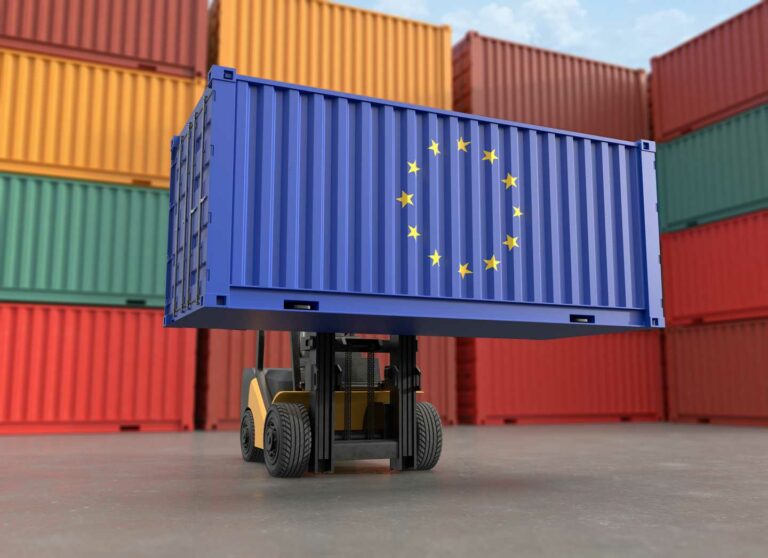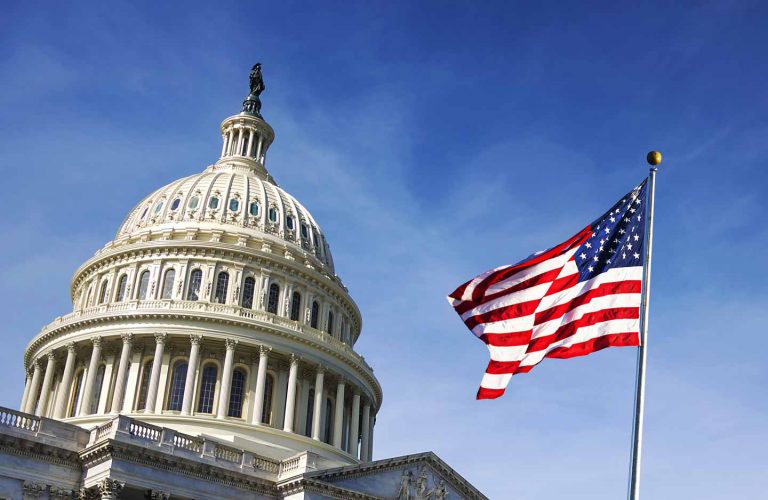The UK will no longer be subject to the European regulation, as it will no longer be part of the EU as of 01/01/2020.
As the United Kingdom has formally ruled out any possibilities of extending the transitional period, which is due to end on December 31, 2020, it is now certain that the United Kingdom will leave the European Union on 1st January 2021, regardless of whether or not an exit agreement is reached. This means that as of January 1, 2021, the United Kingdom will be considered as a country outside the European Union and therefore no longer be subject to the various European regulations (Customs Code of the Union, VAT Directive, Posting of Workers Directive, etc.) but only to its regulations.
With less than 6 months to go before the deadline, we offer you a summary of the main consequences of Brexit.
The impact of Brexit on customs in the United Kingdom
From 1st January 2021, companies receiving goods in the UK from an EU Member State will no longer make intra-community acquisitions, but imports. They will therefore have to lodge a customs declaration for each entry of goods into the UK. On the other hand, it will no longer be necessary to lodge an Intrastat declaration.
HMRC has published a notice, “The Border Operating Model“, detailing how the UK border will operate after the end of the transitional period.
In particular, the following are provided for:
- a gradual return of customs inspections in the United Kingdom for goods coming from an EU Member Stat;
- an obligation to appoint a customs representative established in the United Kingdom and figuring in of the list of operators authorised to manage customs operation;
- an obligation to obtain an EORI number in the United Kingdom (the European EORI number is no longer usable in the United Kingdom), for companies that have not been automatically assigned a number;
- the introduction of the reverse charge of VAT on imports into the United Kingdom to avoid cash advance;
- the specific VAT treatment for low-value parcels imported into the UK.
Moreover, the British tax administration (HMRC) has published two notices explaining:
- How to import goods from the EU into GB from January 2021 (Pdf);
- How to export goods from GB into the EU from January 2021 (Pdf).
The consequences of Brexit on customs in the European Union
From 1st January 2021, companies receiving goods into a Member State of the European Union from the United Kingdom will no longer make intra-community acquisitions, but imports. They will therefore be required to file a customs declaration for each introduction of goods into the EU and to pay import VAT and customs duties where necessary. On the other hand, it will no longer be necessary to file an Intrastat declaration.
The consequences of Brexit in terms of VAT
The European Commission has published a notice – Retrait du Royaume-Uni et règles de l’UE dans le domaine de la Taxe sur la Valeur Ajoutée (in French) – detailing the VAT consequences of Brexit
For European companies operating a taxable activity in the United Kingdom
European companies operating in the UK will be required to obtain a UK VAT number.
While in principle EU businesses are not required to appoint a tax representative in the UK, they are strongly advised to appoint a tax agent in the UK who will take care of all their VAT obligations in this country on their behalf.
In addition, businesses established in an EU Member State can now obtain a refund of VAT paid in the United Kingdom through the so-called “8th Directive” procedure by applying via the electronic portal accessible in their Member State of establishment. However, as a result of Brexit, applications for refunds of UK VAT paid during the year 2020 will have to be submitte.
- Until 31st March 2021 through the European electronic portal;
- From 1st April 2021, directly to the UK tax authorities in accordance with a specific refund procedure in the United Kingdom.
Finally, except for supplies of services subject to a specific territoriality rule:
- Supplies of services carried out by a European supplier for a taxable customer (BtoB) established in the UK will be subject to VAT in the UK;
- Whereas services supplied by a European supplier to a non-taxable customer (BtoC) established in the UK will be subject to VAT in the country where the supplier is established.
For British companies operating a taxable activity in the European Union
As from 1 January 2021 the United Kingdom will be considered as outside the European Union. As a consequence, UK companies will be required in certain EU countries to appoint a tax representative.
Please note that failing to appoint a tax representative may result in the deactivation of the intra-community VAT number, as is the case in Belgium. (For more information, please check our article “Clarification of the obligation to appoint a tax representative for UK companies“)
In addition, UK businesses can now obtain a refund of VAT paid in another EU Member State through the so-called “8th Directive” procedure, by applying via the electronic portal available in the UK. However, as a result of Brexit, applications for refunds of EU VAT paid during the year 2020 will have to be made:
- Until 31 March 2021 through the European electronic portal;
- From 1 April 2021, through the so-called “13th Directive” refund procedure applicable to companies that are not established in the EU.
Please note that, in some EU Member States, VAT refunds may only be made under condition that reciprocity agreements have been cocluded between the United Kingdom and themselves.
Finally, except for supplies of services subject to a specific territoriality rule:
- Supplies of services carried out by a UK supplier to a taxable customer (BtoB) established in the EU will be subject to VAT in the Member State where the customer is established;
- Whereas supplies of services carried out by a UK supplier to a non-taxable customer (BtoC) established in the EU will be subject to VAT in the UK.
The consequences of Brexit on matters other than customs and VAT
To find out the consequences of Brexit in other areas (posting of workers, environment, competition, health, etc…), we advise you to consult the preparedness notices published by the European Commission.
Why choose ASD Group?
Specialised in assisting companies carrying out intra-community operations, we put our experience at your service to help you with your tax and customs procedures. Choosing ASD Group means benefiting from:
- A team of tax specialists located around the world. Our experts will assist you in all your procedures and take care of all your VAT formalities;
- A team of customs specialists who will accompany you and carry out your customs formalities for you;
- A constant regulatory watch in order to identify regulatory changes in tax and customs matters and thus ensure your compliance;
- Specific software tools to control your flows and thresholds to secure your operations.
For further information, contact our experts.




